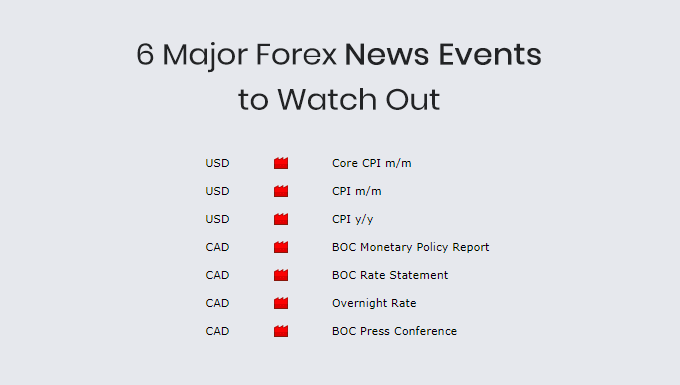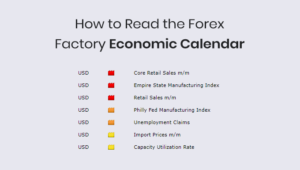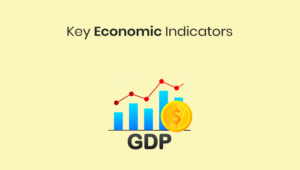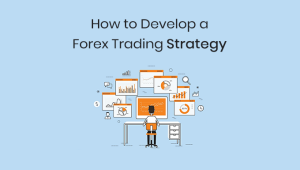Forex trading is deeply linked with various economic, political, and financial news events. Knowledge of these events is crucial for any trader who wants to succeed in this volatile market. In this comprehensive guide, we’ll delve into the major forex news events that you need to keep an eye on.
Major Forex News Events that Affect the Forex Market
- Interest Rate Decisions
- Employment Reports
- Inflation Rates
- GDP Growth Figures
- Geopolitical Events
- Trade Balance Reports
Interest Rate Decisions
Interest rate decisions by central banks are a significant driver of forex market movements. Central banks like the Federal Reserve in the United States, the European Central Bank in the Eurozone, and the Bank of England set the interest rates, and their decisions have a direct impact on the currency value.
When a central bank raises interest rates, the currency generally appreciates. This is because higher interest rates attract foreign capital, boosting demand for the domestic currency. Conversely, a rate cut usually leads to currency depreciation.
The anticipation of an interest rate change can cause considerable volatility in the market. Traders often speculate on what the decision will be, and any unexpected announcements can result in sharp price swings.
It’s essential for forex traders to follow the scheduled meetings and statements by central banks. You can find these in economic calendars, which detail when these meetings will happen.
Most central banks issue statements or press releases immediately after the interest rate decision. This release is a valuable source of information as it provides insights into the bank’s view on the economy, which can be a decisive factor in predicting future rate changes.
Traders often use various tools and strategies to predict interest rate changes, such as studying economic indicators and following political news. Some also turn to technical analysis to evaluate potential market reactions.
However, it’s crucial to be cautious when trading based on interest rate decisions. While they offer opportunities for profit, the market’s volatile nature following these announcements also carries risks.
Employment Reports
Employment reports like the U.S. Non-Farm Payrolls (NFP) play an essential role in the forex market. These reports offer insights into a country’s economic health, which, in turn, affects its currency’s strength.
NFP is one of the most closely watched indicators and can significantly move the forex market. It is typically released on the first Friday of every month and provides data on the number of jobs added or lost in the previous month, excluding the agricultural sector.
A strong NFP report generally leads to an appreciation of the U.S. Dollar, as it indicates economic strength. On the other hand, a weak NFP can lead to the currency’s depreciation.
In addition to the U.S. NFP, other countries also release similar employment data. For instance, the United Kingdom has the Claimant Count Change, and Australia has the Employment Change report.
Just like with interest rate decisions, traders often engage in speculative trading leading up to the release of employment reports. However, this type of trading is not without risks, especially if the actual data deviates significantly from market expectations.
Aside from the headline numbers, it’s crucial to dig deeper into the employment report. Look at other metrics like wage growth and unemployment rates, as these can also influence the currency markets.
Again, while trading based on employment reports can be profitable, it also comes with risks due to market volatility. Always ensure you have a risk management strategy in place.
Inflation Rates
Inflation is another critical economic indicator that affects forex trading. Central banks closely monitor inflation levels to set their monetary policies, which, in turn, influence currency values.
A moderate level of inflation is generally seen as a sign of a healthy economy, leading to potential currency appreciation. On the other hand, hyperinflation or deflation can have negative effects, causing a currency’s value to decline.
Inflation data is usually released monthly, with various indices used to measure it. In the United States, the Consumer Price Index (CPI) and the Producer Price Index (PPI) are among the most commonly watched inflation indicators.
These indices measure the change in the price of a basket of goods and services over time, providing insights into the economy’s health. For forex traders, they offer valuable information for trading decisions.
It’s important to note that inflation rates are closely related to interest rates. Central banks may raise interest rates to combat high inflation, which could lead to currency appreciation.
However, trading based on inflation data requires careful consideration of other economic factors and indicators. Additionally, traders should be prepared for market volatility following the release of significant inflation data.
Inflation expectations also play a role in forex trading. If the market expects inflation to rise, this could be priced into currency values even before the actual data is released.
Always be cautious when trading based on inflation rates. The market can react unpredictably, especially if the released data significantly differs from expectations. Therefore, a sound risk management strategy is crucial.
GDP Growth Figures
Gross Domestic Product (GDP) is another significant economic indicator in forex trading. It represents the total value of all goods and services produced over a specific time period within a country and provides a comprehensive overview of a nation’s economic health.
A growing GDP usually leads to an appreciating currency, as it indicates a strong economy. Conversely, a shrinking GDP can result in currency depreciation.
GDP data is usually released quarterly and is often revised in subsequent releases, so it’s essential to keep an eye on these revisions as well.
Traders typically use GDP figures in conjunction with other economic indicators to make trading decisions. For example, strong GDP growth coupled with low inflation could lead to currency appreciation.
However, it’s important to note that GDP figures are often “priced in” to the market, meaning that the market may not react strongly to the data if it meets expectations.
When trading based on GDP figures, it’s crucial to consider the broader economic context. For example, a country with high GDP growth but rising inflation and debt may not see its currency appreciate in the long term.
As with other economic indicators, trading based on GDP growth figures carries risks. Market volatility can be high following the release of such data, especially if it deviates significantly from expectations.
Therefore, having a robust risk management strategy in place is essential when trading based on GDP data. Always be prepared for unexpected market reactions and ensure you have a well-thought-out trading plan.
Geopolitical Events
Geopolitical events like elections, conflicts, and natural disasters can have a significant impact on the forex market. These events introduce uncertainty, leading to increased volatility and, consequently, trading opportunities.
For instance, elections can bring about changes in government policies, affecting economic conditions and currency values. Traders often monitor political developments closely to gauge potential market reactions.
Similarly, conflicts can lead to market instability. For example, geopolitical tensions in oil-producing regions can cause fluctuations in oil prices, affecting currencies like the USD and CAD, which are closely tied to oil.
However, trading based on geopolitical events is risky and requires a deep understanding of various factors, including political climate, economic conditions, and market sentiment.
It’s also essential to be aware of the timing of such events. For example, trading immediately after a significant geopolitical event can be hazardous due to extreme market volatility.
Being informed is key when it comes to trading based on geopolitical events. Make sure you’re up-to-date with the latest news and understand the broader context before making any trading decisions.
Trade Balance Reports
Trade balance reports offer insights into a country’s economic health by showing the difference between its exports and imports. A positive trade balance (surplus) generally boosts a nation’s currency, while a negative balance (deficit) usually leads to depreciation.
Trade data is typically released monthly and is an essential part of the forex market’s fundamental analysis. Traders use this data to gauge a country’s economic strength and make informed trading decisions.
However, the trade balance is not the only factor affecting a currency’s value. Other economic indicators like GDP growth, inflation, and employment rates also play a role.
Furthermore, market sentiment can influence how traders interpret trade balance data. For example, if the market is optimistic about a country’s economic prospects, even a trade deficit may not lead to significant currency depreciation.
As always, trading based on trade balance reports carries risks due to market volatility. It’s crucial to consider other economic indicators and have a robust risk management strategy in place.
Trade agreements and tariffs can also affect trade balance figures. For instance, new trade agreements between countries can lead to changes in export and import volumes, affecting the currency values.
Conclusion
Understanding these 6 major forex news events is crucial for anyone involved in forex trading. These events—Interest Rate Decisions, Employment Reports, Inflation Rates, GDP Growth Figures, Geopolitical Events, and Trade Balance Reports—have a significant impact on currency values and market volatility. Being well-informed and having a robust risk management strategy can help traders navigate the complexities of the forex market successfully.
FAQs
1. How Do Interest Rate Decisions Impact the Forex Market?
Interest rate decisions by central banks like the Federal Reserve, European Central Bank, and Bank of England significantly influence currency values. A hike in interest rates usually leads to currency appreciation as it attracts foreign capital. Conversely, a rate cut tends to lead to currency depreciation. These decisions can create market volatility, offering both trading opportunities and risks.
2. What is the Significance of Employment Reports in Forex Trading?
Employment reports, such as the U.S. Non-Farm Payrolls (NFP), provide insights into a country’s economic health, affecting its currency’s strength. Strong employment numbers generally lead to an appreciation of the currency as they indicate economic vitality. Conversely, weak employment figures can result in currency depreciation. These reports can also cause significant market volatility.
3. How Does Inflation Affect Currency Value?
Inflation levels play a crucial role in a country’s economic policies and, consequently, its currency’s value. Moderate inflation is generally seen as positive for a currency, while either hyperinflation or deflation is viewed negatively. Central banks use interest rates to combat high inflation, which could, in turn, lead to currency appreciation or depreciation.
4. Why are GDP Growth Figures Important in Forex Trading?
Gross Domestic Product (GDP) figures offer a comprehensive overview of a nation’s economic health. Strong GDP growth is usually beneficial for a country’s currency, signaling a robust economy. Conversely, a declining GDP can lead to currency depreciation. Traders use GDP data in conjunction with other economic indicators like inflation and employment reports to make informed trading decisions.
5. How Do Geopolitical Events Affect the Forex Market?
Geopolitical events such as elections, conflicts, and natural disasters introduce uncertainty and volatility into the forex market. These events can drastically change government policies and economic conditions, affecting currency values. Trading based on geopolitical events requires a deep understanding of various factors and is generally riskier due to increased market volatility.






